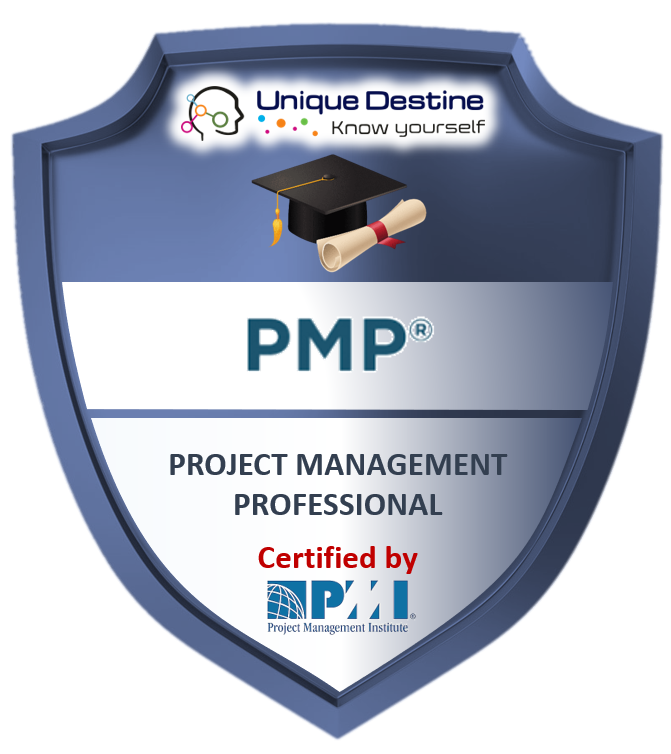
PMP® Certification Training
PMP® Certification Training
The PMP certification is managed by the Project Management Institute (PMI®) and reflects the PMI's project management processes as published in the PMBOK® Guide. Since 1984, the PMP certification has been one of the most sought-after project management credentials available.
The PMP certification is a globally recognized credential, and individuals are encouraged to remain active via PMI's Continuing Certification Requirements (CCRs). Only individuals who maintain active PMP credentials may refer to themselves as Project Management Professionals. Individuals do not need to be a member of PMI to earn a PMP credential.
Course Content
- Introduction to the PMBOK® Guide
- A Guide to the Project Management Body of Knowledge (PMBOK® Guide Sixth Edition)
- Key terms and the project life cycle
- Identifying External Environmental Factors (EEFs) and Organizational Process Areas (OPAs)
- Organizational structure and influences
- Mapping the interrelationships of knowledge areas to process groups
- o Outlining the five process groups
- o Defining the nine knowledge areas
- A Guide to the Project Management Body of Knowledge (PMBOK® Guide Sixth Edition)
- Project Integration and Scope Management
- Identifying and integrating processes and activities
- Identifying a new project, business case and strategy
- Defining and coordinating all subsidiary plans
- Change-control and configuration management
- Defining, verifying and controlling the scope
- Facilitating requirements-gathering using interviews, workshops and decision-making techniques
- Requirements changes and traceability matrices
- Determining scope through product analysis and Analysis of Alternatives (AoA)
- Creating the WBS through decomposition
- Setting the scope baseline and analysing variances
- Identifying and integrating processes and activities
- Project Time and Cost Management
- Time management
- Defining and sequencing activities
- Estimating activity resources and durations with analogous, parametric and three-point techniques
- Developing the schedule using PDM, ADM and CDM diagrams
- Determining the cost baseline and applying Earned Value Management (EVM)
- Identifying costs and calculating performance baseline
- Assessing EVM key dimensions, variances and indices
- Forecasting with EVM
- Performance reporting
- Time management
- Project Quality Management
- Implementing systems for quality
- Preventing nonconformance through Cost of Quality (CoQ)
- Performing continuous improvements
- Tools and techniques to study
- Planning for quality using statistical tools
- Implementing quality metrics and audits
- Implementing systems for quality
- Project Human Resource, Communication and Procurement Management
- Developing the plan and acquiring the team
- Creating hierarchical and matrix charts (RAM & RACI)
- Developing the team
- Reward and recognition
- Motivational theories
- Conflict resolution techniques
- Managing the stakeholders through communication
- Analysing stakeholders and their expectations
- Distributing information with communication models
- Applying communication theory and the levels of power
- Procurement management
- Performing make-or-buy analysis
- Formally accepting the product and closing the project
- Developing the plan and acquiring the team
- Project Risk Management
- Assessing project risks
- Qualitative and quantitative risk analysis
- Evaluating Expected Monetary Value (EMV)
- Exam-relevant tools and techniques
- Developing threat/opportunity response strategies
- Reassessing and controlling risks
- Assessing project risks
- Project Stakeholder Management
- Project Stakeholder Management
- Project Stakeholder management Processes
- Professional Responsibility and Ethics
- The PMI® Code of Ethics and Professional Conduct
- Balancing the interest of all stakeholders
- Ensuring Individual Integrity
- Professional and Social Responsibility
- Planning for the Exam
- Preparing for test day
- Applying proven tips for exam success
- Conquering exam apprehension
- Personalizing your study plan
- Identifying your strengths and weaknesses
- Optimizing your study time and focus
- Preparing for test day
Pre-requisite & Exam Details
Type: Online Exam having Two hundred (200) multiple choice questions. 175 actual questions & 25 pre-test questions. Each question will have 4 options, one of which is right carrying 1 mark
Duration: 240 minutes (4 hrs)
Pre-requisite:
- Candidates must have attended 35 hours of project management education for PMI R.E.P.
- Candidate should have bachelor degree & posses 4500 hours of Project Management experience
OR
Candidate should have diploma & posses 7500 hours of Project Management experience
Electronic Devices Permitted: No
Open Book: No
Supervised: Yes
Pass Score: 106 0f 175